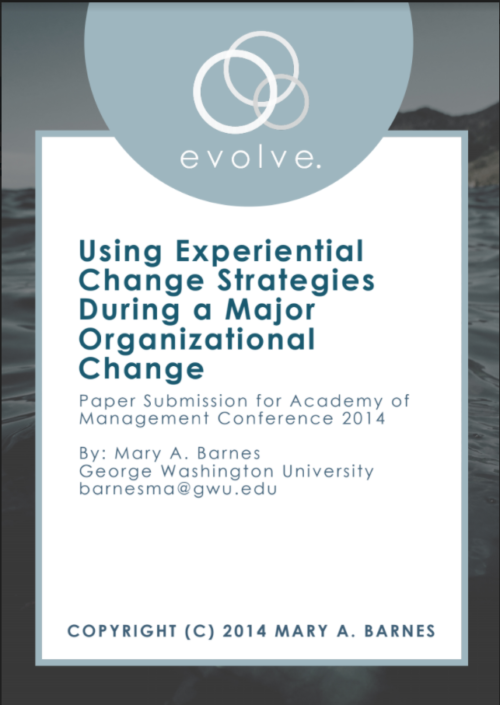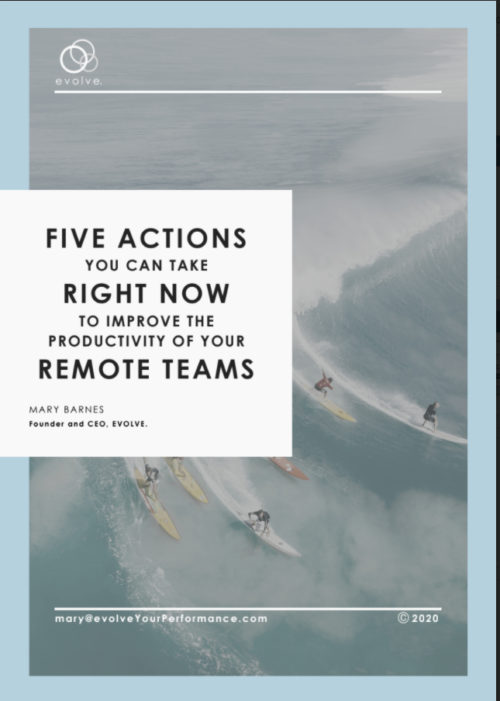-
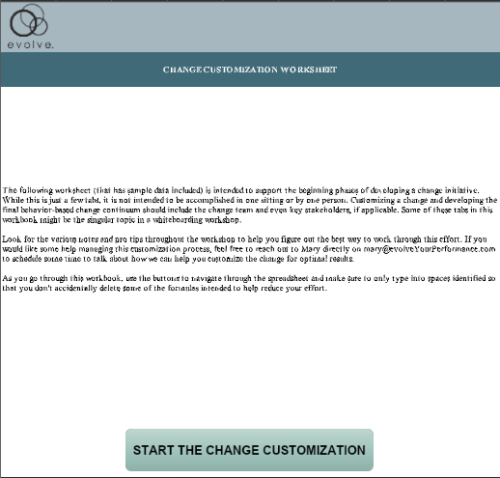 The following worksheet (that has sample data included) is intended to support the beginning phases of developing a change initiative. While this is just a few tabs, it is not intended to be accomplished in one sitting or by one person. Customizing a change and developing the final behavior-based change continuum should include the change team and even key stakeholders, if applicable. Some of these tabs in this workbook might be the singular topic in a whiteboarding workshop. Look for the various notes and pro tips throughout the workshop to help you figure out the best way to work through this effort. If you would like some help managing this customization process, feel free to reach out to Mary directly on mary@evolveYourPerformance.com to schedule some time to talk about how we can help you customize the change for optimal results. As you go through this workbook, use the buttons to navigate through the spreadsheet and make sure to only type into spaces identified so that you don't accidentally delete some of the formulas intended to help reduce your effort.
The following worksheet (that has sample data included) is intended to support the beginning phases of developing a change initiative. While this is just a few tabs, it is not intended to be accomplished in one sitting or by one person. Customizing a change and developing the final behavior-based change continuum should include the change team and even key stakeholders, if applicable. Some of these tabs in this workbook might be the singular topic in a whiteboarding workshop. Look for the various notes and pro tips throughout the workshop to help you figure out the best way to work through this effort. If you would like some help managing this customization process, feel free to reach out to Mary directly on mary@evolveYourPerformance.com to schedule some time to talk about how we can help you customize the change for optimal results. As you go through this workbook, use the buttons to navigate through the spreadsheet and make sure to only type into spaces identified so that you don't accidentally delete some of the formulas intended to help reduce your effort. -
 This work provides an overview of the contributions of Billie Alban, one of the foremost early thinkers and leaders in the field of OD and change. From her early childhood and throughout her life, Billie became the voice of advocacy for stakeholder inclusion. Starting with her young adult life, this chapter explores the influences early OD figures had on her development as a practitioner and then moves on to her own formidable contributions to the field which served to influence the development of generations of OD practitioners. Billie Alban’s key works on the use of large scale change methods, her collaborators and her beliefs that we are always in community are discussed, as is the key legacy of her work and presence in the field of OD.
This work provides an overview of the contributions of Billie Alban, one of the foremost early thinkers and leaders in the field of OD and change. From her early childhood and throughout her life, Billie became the voice of advocacy for stakeholder inclusion. Starting with her young adult life, this chapter explores the influences early OD figures had on her development as a practitioner and then moves on to her own formidable contributions to the field which served to influence the development of generations of OD practitioners. Billie Alban’s key works on the use of large scale change methods, her collaborators and her beliefs that we are always in community are discussed, as is the key legacy of her work and presence in the field of OD. -
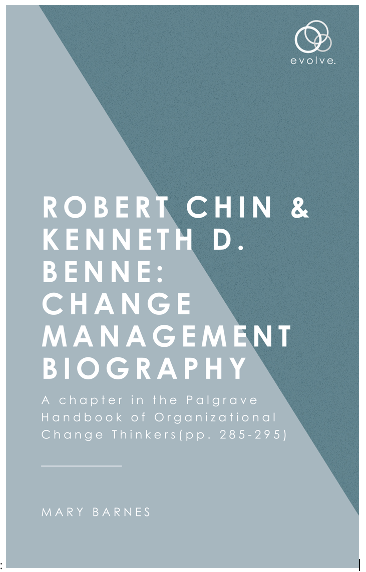 Robert Chin and Kenneth Benne spent key years in the middle of their careers working and collaborating with each other. Chin came from a social psychology background while Benne was from an educational philosophy background. During their time together, they founded an interdisciplinary Human Relations Center at Boston University, cowrote a seminal book on planned change with Warren Bennis and, within that text, developed three key strategies for implementing a planned change.
Robert Chin and Kenneth Benne spent key years in the middle of their careers working and collaborating with each other. Chin came from a social psychology background while Benne was from an educational philosophy background. During their time together, they founded an interdisciplinary Human Relations Center at Boston University, cowrote a seminal book on planned change with Warren Bennis and, within that text, developed three key strategies for implementing a planned change. -
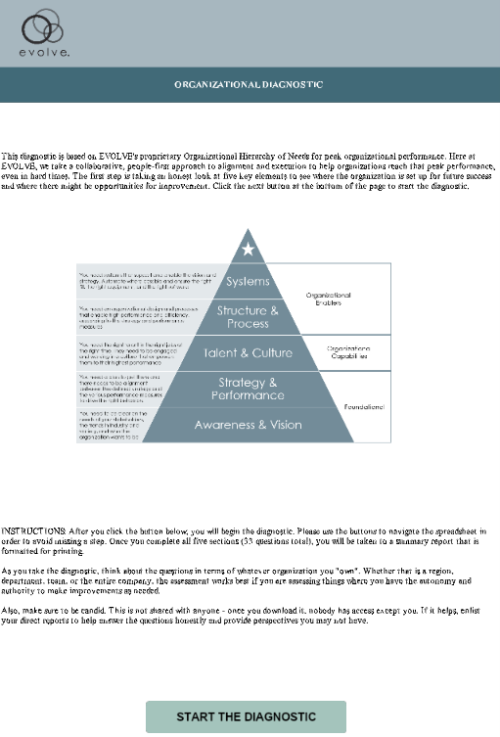 This diagnostic is based on EVOLVE's proprietary Organizational Hierarchy of Needs for peak organizational performance. Here at EVOLVE, we take a collaborative, people-first approach to alignment and execution to help organizations reach that peak performance, even in hard times. The first step is taking an honest look at five key elements to see where the organization is set up for future success and where there might be opportunities for improvement. Click the next button at the bottom of the page to start the diagnostic.
This diagnostic is based on EVOLVE's proprietary Organizational Hierarchy of Needs for peak organizational performance. Here at EVOLVE, we take a collaborative, people-first approach to alignment and execution to help organizations reach that peak performance, even in hard times. The first step is taking an honest look at five key elements to see where the organization is set up for future success and where there might be opportunities for improvement. Click the next button at the bottom of the page to start the diagnostic. -
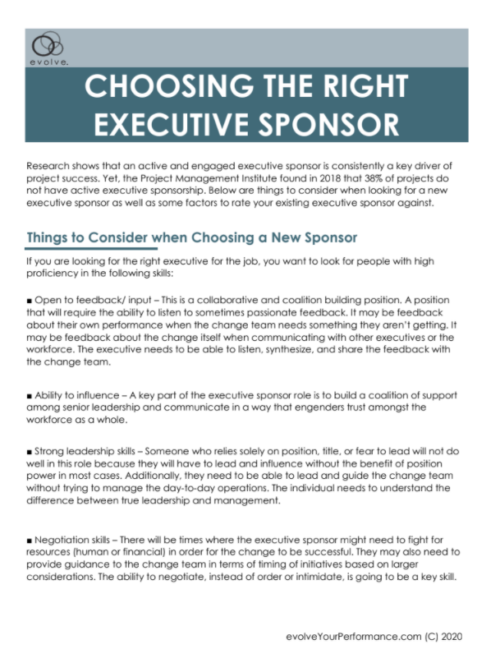 Research shows that an active and engaged executive sponsor is consistently a key driver of project success. Yet, the Project Management Institute found in 2018 that 38% of projects do not have active executive sponsorship. Below are things to consider when looking for a new executive sponsor as well as some factors to rate your existing executive sponsor against.
Research shows that an active and engaged executive sponsor is consistently a key driver of project success. Yet, the Project Management Institute found in 2018 that 38% of projects do not have active executive sponsorship. Below are things to consider when looking for a new executive sponsor as well as some factors to rate your existing executive sponsor against. -
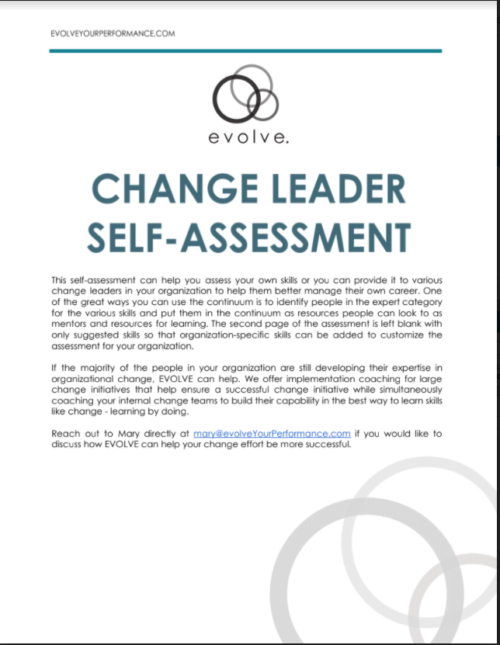 This self-assessment can help you assess your own skills or you can provide it to various change leaders in your organization to help them better manage their own career. One of the great ways you can use the continuum is to identify people in the expert category for the various skills and put them in the continuum as resources people can look to as mentors and resources for learning. The second page of the assessment is left blank with only suggested skills so that organization-specific skills can be added to customize the assessment for your organization.
This self-assessment can help you assess your own skills or you can provide it to various change leaders in your organization to help them better manage their own career. One of the great ways you can use the continuum is to identify people in the expert category for the various skills and put them in the continuum as resources people can look to as mentors and resources for learning. The second page of the assessment is left blank with only suggested skills so that organization-specific skills can be added to customize the assessment for your organization.
